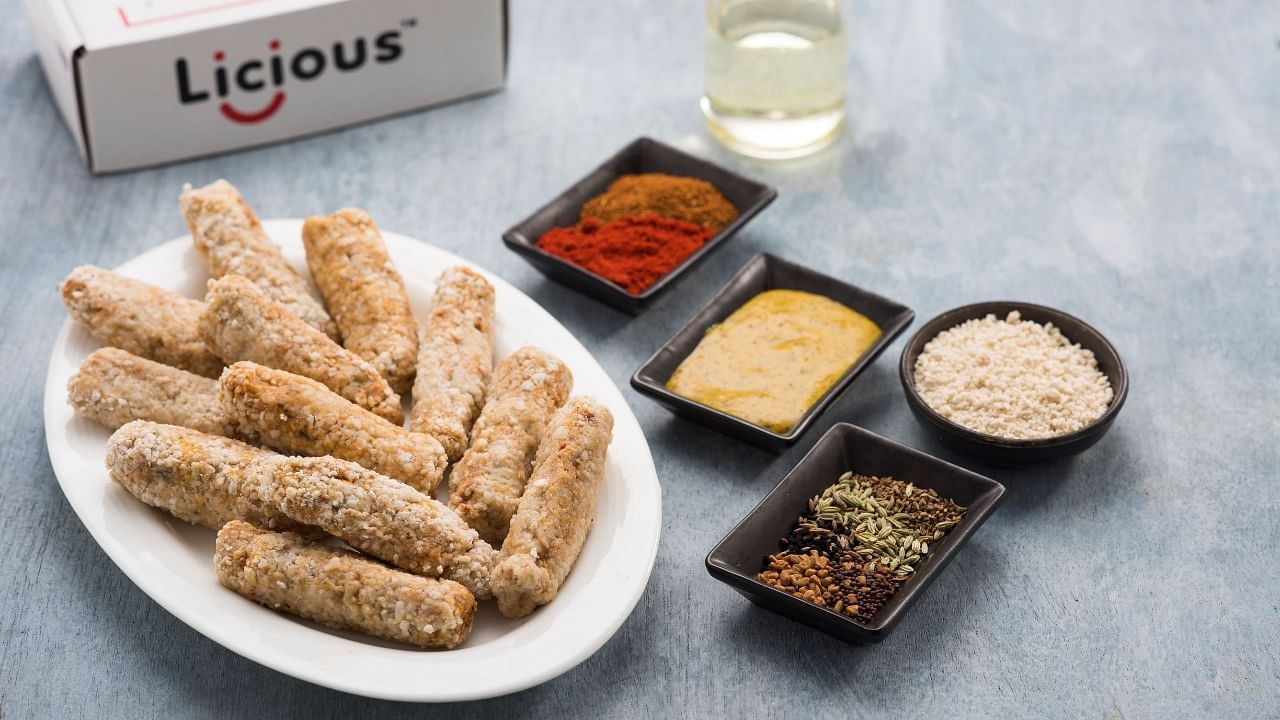
When Abhay Hanjura decided to give up a well-paying job at an insurance broking firm to change the way meat is procured, processed and sold in India, his family threatened to disown him. The family of “pure vegetarians” found his idea of launching an online meat market hard to stomach.
That did not stop Hanjura from joining hands with Vivek Gupta to launch India’s first direct-to-consumer meat startup Licious, which joined the unicorn club last year. A unicorn refers to a startup with a valuation of $1 billion and above.
The startup faced many challenges outside the co-founder’s home too, so much so that it had to stop operations on the very day of its launch in 2015 in the world’s No. 4 meat-producing nation.
All of its deliveries on the day were late.
“While we defined a high-quality product solution, we did not define a great execution on the ground for the supply chain to move,” the startup’s co-founder Vivek Gupta explained, adding that it took around 15-20 days to get Licious back in business.
The startup has borrowed a page from Amul’s playbook of eliminating middlemen and directly controlling procurement, processing and marketing for better results.
“Horizontal companies don’t solve vertical problems, right? What Amul has done for milk in the last 20-30 years, somebody has to do the same thing in meat and meat is an equally large category, we consume around three lakh crore worth of meat in a year,” Gupta said.
It runs on a farm-to-fork model and owns the entire back-end supply chain and cold chain.
“I strongly believe that what Amul did for milk, Licious will do for animal husbandry,” Hanjura said. “An entire ecosystem will benefit wherein you consumers a mainstream category, brand it and as a result of that you’ll be modernising the supply chain.”
Around 50% of the startup’s meat now comes from its own farms, versus 10% in 2020. It also owns processing and delivery centres.
Licious is also doing its bit in removing the stigma associated with buying meat. For starters, unlike many traditional butchers, it does not sell its meat in black plastic bags.
“At least in our mind, this white packaging is not a consumer-facing stunt, it is a statement to the world that you know the category belongs in that beautiful, pristine, highly glorious world. And we are here to take it and get there,” Hanjura said.
Despite its early-mover advantage, grabbing a bigger bite of the online meat sales pie won’t be easy.
“Poor customer loyalty due to the entry of more players also is a threat for the company,” said Akshay D’Souza, Chief of Growth & Insights at retail intelligence firm Bizom.
Licious, which faces cut-throat competition from rivals such as TenderCuts, Fresh To Home and ZappFresh, played down those concerns.
“A greater number of players improves the odds of introducing better tech and innovation to the industry. This translates to consumers having access to better products and experience and that is our ultimate aim,” the startup said.
Frequent livestock infections, the rise of meat substitutes, the costs tied to servicing smaller orders and a consumer preference in smaller towns to buy meat from butcher shops directly are the other challenges faced by online meat businesses.
Opportunities galore
Licious is looking to crack the highly fragmented Rs 3 lakh crore market and improve the quality of meat consumed in India.
There is a dearth of cold storage facilities in India, making meat storage a huge headache and retention of freshness a big challenge for companies in the unorganised meat market. Analysts said this presented a huge opportunity for online players such as Licious.
“What we are really solving is that the offline buying experience is fraught with inconsistency and lack of standardisation,” Hanjura told DH, while taking a sip of his company’s chicken soup. “In India, meat is cut in front of consumer eyes, right? Whereas globally it doesn’t happen like that.”
Like many others, Licious got a boost during Covid-19 as the pandemic boosted awareness about consuming safe, hygienic, and healthy food products; and improved demand for protein-rich foods.
“Estimates suggest an over 3x increase in consumption from online players since the start of the pandemic,” D’Souza told DH.
That helped the Temasek-backed startup boost its revenue to Rs 420.3 crore in FY21 from Rs 131.8 crore in FY20, according to Entrackr.
Licious, which expects to be profitable in 12-18 months, recently opened its first offline store in Bengaluru.
“Licious is seen as an industry leader, being among the earliest entrants in this space. The market opportunity to be tapped is huge and being well funded will only help it to scale rapidly while maintaining quality,” D’Souza said.
(This is the sixth story in the “a billion $ idea” series focused on startups that joined the unicorn club in FY 2021-22)